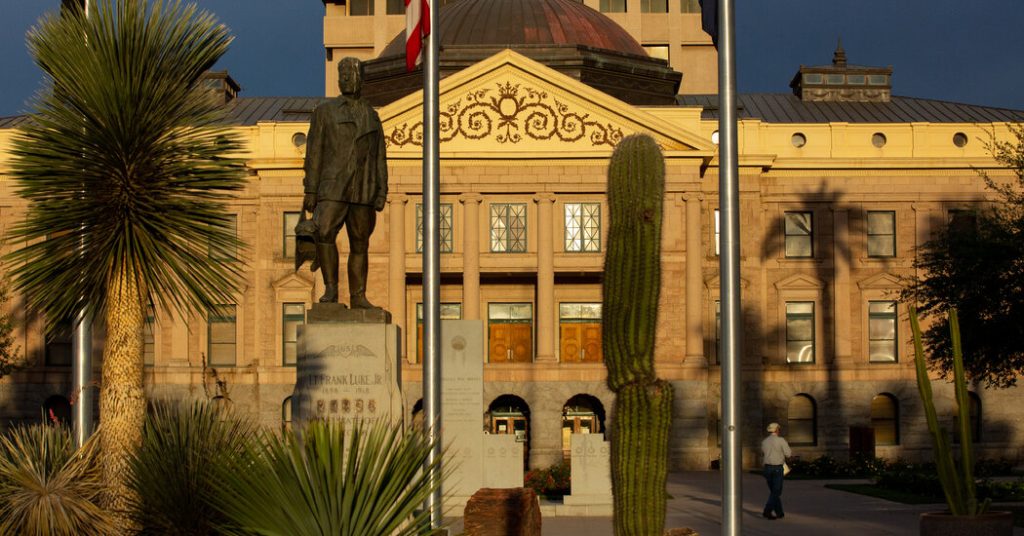The two chambers of Arizona’s State Legislature, the House and Senate, clashed over whether to repeal the state’s 1864 law banning abortion. The ban, upheld by a recent State Supreme Court ruling, only allows for an exception to save the life of the mother and imposes fines and prison sentences on doctors who violate the law. The House Republican leadership, including House Speaker Ben Toma, resisted efforts to repeal the ban, even in the face of pressure from prominent Republicans like former President Donald J. Trump. The GOP foresaw political backlash in supporting the ban, which was seen as extreme and archaic by many voters.
Repealing the law would revert Arizona to a 15-week abortion ban, and the overturning of Roe v. Wade two years ago set the stage for reinstating the 1864 law. Republicans initially resisted efforts to repeal it, but after pressure from Mr. Trump and other prominent figures, the Legislature considered taking action. The chaos in the State Legislature reflects the deep divide over abortion rights and the influence of anti-abortion activists who hold sway in many Republican-controlled statehouses. Meanwhile, abortion rights advocates are pushing for a ballot measure this fall to enshrine abortion access in Arizona’s constitution up until “fetal viability.”
The dynamics in the State Senate and House reflected the broader national debate over abortion, with anti-abortion activists exerting considerable influence compared to abortion rights supporters. The House gallery was filled with anti-abortion supporters who prayed fervently against the repeal effort. Over in the Senate, some Republicans broke ranks with their party to allow the repeal to be introduced, hinting at a possible shift among GOP lawmakers on the issue. The intense lobbying and activism behind the scenes underscored the high stakes involved in the battle over the 1864 ban.
Despite efforts by Democrats to push for a repeal of the ban, Republicans swiftly blocked any vote on procedural grounds, frustrating supporters of abortion rights. The use of procedure to stifle the repeal vote sparked anger and disillusionment among abortion rights advocates, who saw it as a denial of basic control over their own bodies. The intense focus on legislative maneuvers and external pressures, including from former President Trump and GOP leaders, underscored the deeply polarized and contentious nature of the issue of abortion in Arizona.
The clash in the State Legislature over the 1864 ban highlighted the divisions within the Republican Party on abortion policy and the changing political landscape in a post-Roe v. Wade world. The issue of abortion has become increasingly thorny and politically damaging for Republicans, as they navigate the shifting terrain of public opinion and party dynamics. The dramatic events in Arizona underscored the high stakes involved in the battle over abortion rights, with both sides mobilizing fervently to sway lawmakers and shape the outcome of the repeal effort.
As the battle over the 1864 ban plays out in Arizona, voters may ultimately have the final say on the issue this fall. Abortion rights advocates are working to gather signatures for a ballot measure that would enshrine abortion access in the state’s constitution, providing a potential avenue for voters to weigh in on the contentious issue. The brewing conflict over the ban reflects broader trends in the national debate over abortion rights and the complex interplay of political, legal, and social factors shaping the future of reproductive rights in Arizona and beyond.


